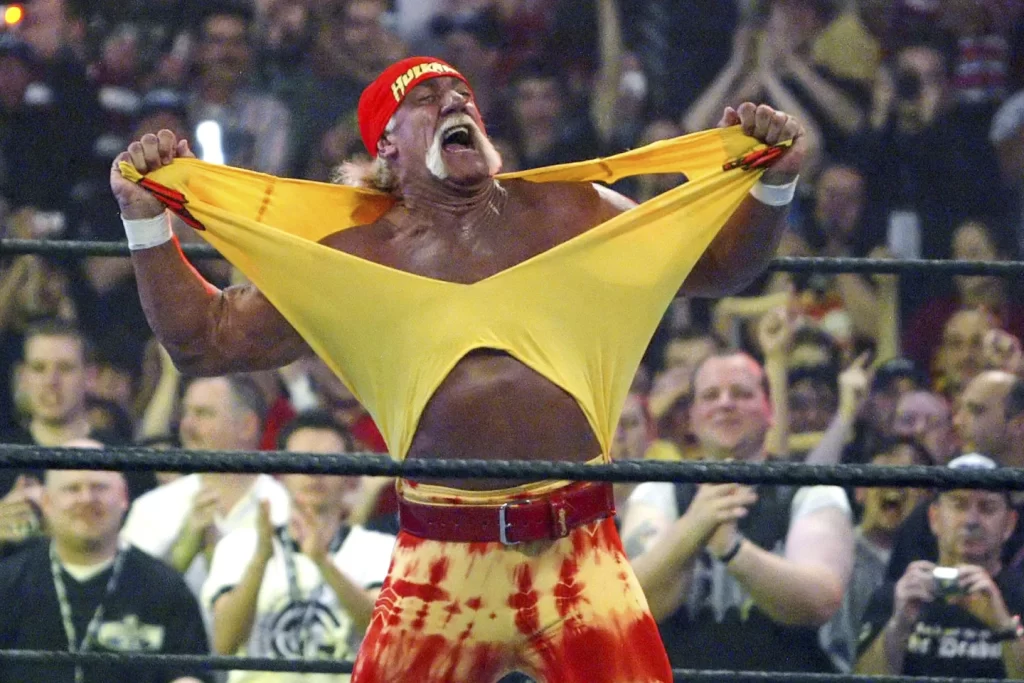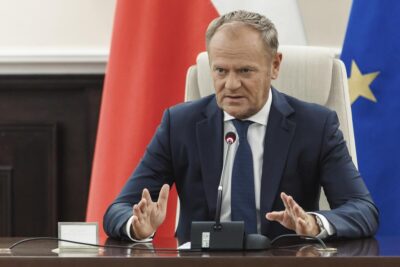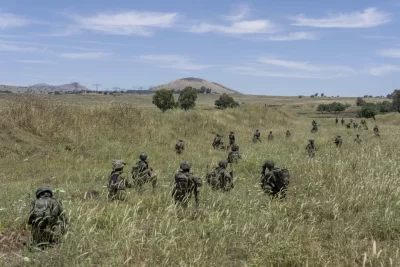
The opening chords of Rick Derringer’s hard-rock guitar would play over the arena sound system. Instantly, 20,000 Hulkamaniacs — and many more as wrestling’s popularity and stadium size exploded — rose to their feet in a frenzy to catch a glimpse of Hulk Hogan storming toward the ring.
His T-shirt half-ripped, his bandanna gripped in his teeth, Hogan faced ’em all in the 1980s — the bad guys from Russia and Iran and any other wrestler from a country that seemed to pose a threat to both his WWF championship and, of course, could bring harm to the red, white and blue.
His 24-inch pythons slicked in oil, glistening under the house lights, Hogan would point to his next foe — say “Rowdy” Roddy Piper or Jake “The Snake” Roberts (rule of thumb: In the 80s, the more quote marks in a name, the meaner the wrestler) — all to the strain of Derringer’s patriotic “Real American.”
In Ronald Reagan’s 1980s slice of wishful-thinking Americana, no one embodied the vision of a “real American” like Hulk Hogan.
“We had Gorgeous George and we had Buddy Rogers and we had Bruno Sammartino,” WWE Hall of Famer Sgt. Slaughter said Friday. “But nobody compared at that time compared to Hulk Hogan. His whole desire was to be a star and be somebody that nobody every forgot. He pretty much did that.”
He saw himself as an all-American hero
Hogan, who died Thursday in Florida at age 71, portrayed himself as an all-American hero, a term that itself implies a stereotype. He was Sylvester Stallone meets John Wayne in tights — only fans could actually touch him and smell the sweat if the WWF came to town.
Hogan presented as virtuous. He waved the American flag, never cheated to win, made sure “good” always triumphed over “evil.” He implored kids around the world: “Train, say your prayers, eat your vitamins.”
Hogan did it all, hosting “Saturday Night Live,” making movies, granting Make-A-Wish visits, even as he often strayed far from the advice that made him a 6-foot-8, 300-plus pound cash cow and one of the world’s most recognizable entertainers.
His muscles looked like basketballs, his promos electrified audiences — why was he yelling!?! — and he fabricated and embellished stories from his personal life all as he morphed into the personification of the 80s and 80s culture and excess.
In the not-so-real world of professional wrestling, Hulk Hogan banked on fans believing in his authenticity. That belief made him the biggest star the genre has ever known.
Outside the ring, the man born Terry Gene Bollea wrestled with his own good guy/bad guy dynamic, a messy life that eventually bled beyond the curtain, spilled into tabloid fodder and polluted the final years of his life. Hogan — who teamed with actor Mr. T in the first WrestleMania — was branded a racist. He was embroiled in a sex-tape scandal. He claimed he once contemplated suicide. All this came well after he admitted he burst into wrestling stardom not on a strict diet of workouts and vitamins, but of performance-enhancing drugs, notably steroids.
The punches, the training, the grueling around-the-world travel were all real (the outcomes, of course, were not). So was the pain that followed Hogan as he was temporarily banished from WWE in his later years. He was the flawed hero of a flawed sport, and eventually not even wrestling fans, like a bad referee, could turn a blind eye to Hogan’s discretions.




